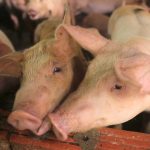The second phase of the UK government’s Border Target Operating Model, which introduces a risk-based approach to import checks for goods entering the country from overseas, has been met with criticism. NFU Scotland has described the implementation as ‘woeful,’ as it leaves many farmers exposed to damaging plant and animal diseases. The system categorizes EU plant and animal products into high-, medium-, or low-risk categories, with businesses paying fees for each type. However, early reports indicate that the required level of checks is not being adhered to, with some shipments being admitted despite incorrect paperwork.
This situation contrasts with the challenges faced by UK food exporters when sending goods to Europe during the early days of Brexit. NFU Scotland’s vice president, Andrew Connon, emphasizes that the lax implementation of import controls may continue to expose farmers to unacceptable risks if not addressed.
In addition to their concerns about the Border Target Operating Model, NFU Scotland emphasized in their election manifesto the requirement for increased resources to enhance import controls. The union also advocated for the establishment of an efficient UK Border Force to minimize food fraud and the associated risks to consumers and biosecurity. Mr. Connon further stressed the urgency of the situation, stating that the current government must promptly address any border control shortcomings and provide updates on the implementation of the latest phase. He underscored the importance of ensuring proper protection for the health of both plants and animals.





